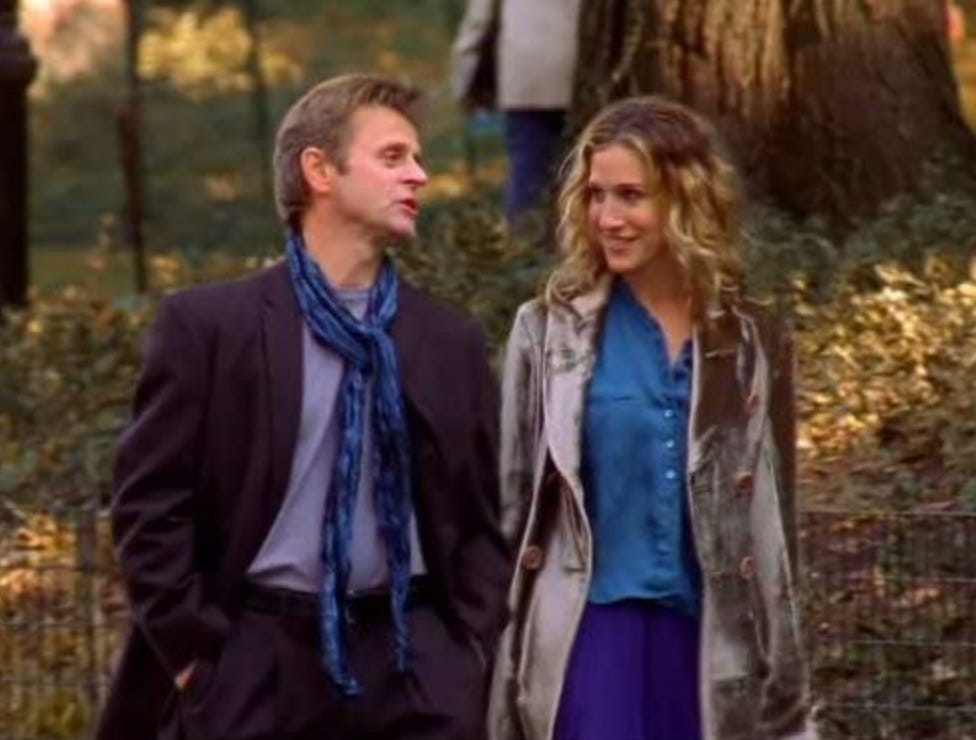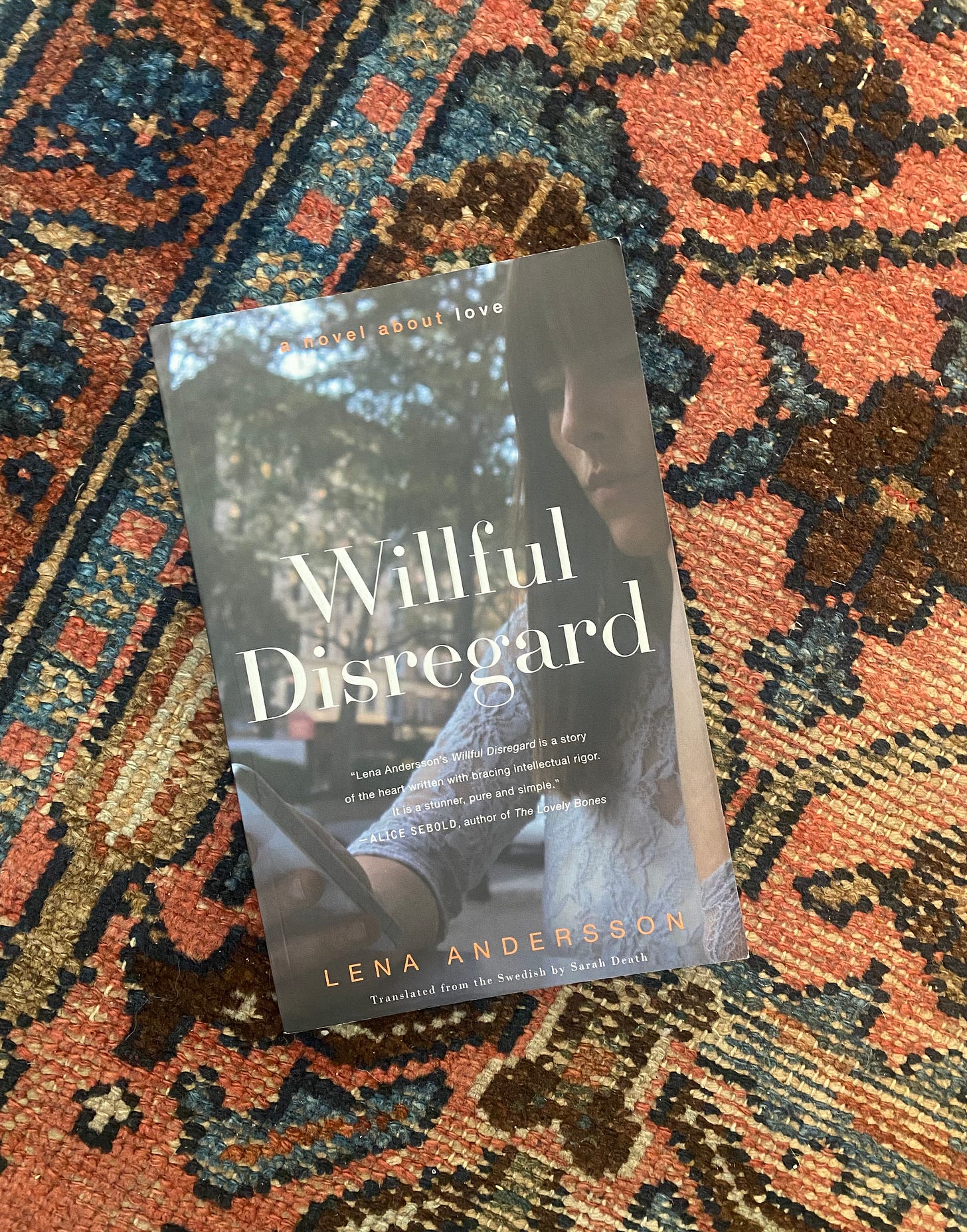The passions
Endless novels of ill-fated love
Have you ever seen that tweet that says something like “What subject could you lecture confidently on for 30 minutes with no preparation?” For me, one answer is contemporary novels about women in love — specifically, crazy or misguided love. Imbalanced, ill-fated love. I read them all. I can’t get enough of them.
Why do I assent (hell, pay) to go on the same ride over and over? Is it because I can relate? That’s a rather unimaginative yardstick by which to measure literary experiences. There is, there should be, more to art. But if I’m honest I do often read these books in a kind of Victorian mode — to be swept away from the smallness of domestic life, seduced and entertained by sentimental stories. I also find womanhood and love so confounding that I’m compelled to surround myself with (bury myself in) efforts at their demystification. I derive some perverse Sisyphean satisfaction from repeated attempts by others to apprehend and describe them. I guess?
Anyway, here are a couple more.
This week I read Alyssa Songsiridej's Little Rabbit, an absorbing debut blurbed by some heavy hitters. I was especially intrigued by Carmen Maria Machado's: "A deeply empathetic and horny novel—a love letter to bottoming and being an artist and following yourself to the end of everything." Sign me up.
I've been waiting for this one and I enjoyed it a lot. The narrator, a 31-year-old queer woman writer living in Boston meets a man in his early 50s at an artist residency. She finds him obnoxious in that context, but her interest is piqued when she encounters him again, and they begin a relationship skewed by their power differential. He’s an established, successful choreographer, an attractive man with money and the gravitas of middle age. A dominant sexual partner and a domineering boyfriend, he’s vegan and has a country house in the Berkshires and a massive ego, and the narrator is soon turned around by his affections. Wasn’t she just living with her best friend, hanging out in dive bars, riding her bike around Somerville, and dating women? Suddenly she’s letting wine breathe, hosting bourgeois dinner parties and donning expensive bondage-adjacent garments.
The disorientation is so total that she almost has to pretend it isn’t happening. When her protective best friend and roommate is like what are you doing with this guy, the narrator, who’s actually weathering thunderous self-doubt, acts like it all makes perfect sense. The thing that does make sense is the sex. The desire unleashed by the relationship is real, and our poor narrator is having her first experience with this particular sort—the kind that warps time and identity, that calls into question all the pat orthodoxies of one’s woke little life.
I liked the way Songsiridej leans in to the grandiosity of early love. Her writing is so controlled that the reader can tell these are choices she’s making, to let the narrator live in full swoon mode. Unmoored, overwhelmed, finding poetry in places it isn’t.
The narrator loses her footing in the life she was building (that’s why we call it falling) and in every way grows less legible to herself, even as she acknowledges that she also feels alive and whole. Love contains multitudes! I appreciated the earnestness of the narrator's confusion about her sexual desires, specifically whether it was okay to enjoy submitting to a powerful man. Her inner turmoil cuts against the grain of contemporary culture, where it often feels like people are supposed to be un-shockable or perform a flatlined nonchalance when it comes to sex. (Its own form of unoriginality, no?)
This is at its heart a novel about the period of time during which the crystal clarity of youthful conviction dissolves into the mess that is real adulthood, and Songsiridej is a confident guide through this terrain. Her writing is vivid and arresting and fun to read.
I consider it a personal failing, but I do have a hard time caring about choreography and modern dance, so it was challenging to take the love interest’s work seriously (I found myself picturing a whimsically be-scarfed Baryshnikov in Sex and the City).
It wasn’t lost on me, however, that Songsiridej also mocks the choreographer’s self-seriousness here and there, and that the book itself takes on the rhythm of a series of performances. There is a kind of self-consciously stylized drama to the story, enabled by dance, that works well.
Another novel I devoured this weekend is Lena Andersson's Willful Disregard (translated by Sarah Death), which is funny — so, so funny and profoundly neurotic and a bit unhinged. The kind of book that makes you feel, in an almost retrograde way, a satisfyingly nostalgic way, that dating is war, the “battle between the sexes” a forever stalemate, maybe even that men are from Mars and women Venus.
It’s about another 31-year-old woman writer, this time a Swedish poet and essayist named Ester, who is asked to write a lecture about an older male artist. She sets herself to the task with conscientious (or thorough, or manic) focus and becomes entirely obsessed with him. She even leaves her stable relationship for the chance to arrange herself in such a way that the artist’s attention might fall upon her, even momentarily, even for the length of one text message or cigarette or dinner or night in bed. It does, and she thinks they’re embarking on a serious love relationship, but he keeps disappearing, not writing back, staring off into the distance, mentioning work, his precious work, so much work. Is the artist an inscrutable genius or self-involved and dumb? It’s the latter, but that’s not the point.
Ester knows she is smarter than the artist, but she can’t keep his attention and she begins to go mad. Her voyage from a sane, balanced, even successful life to depraved, text-starved lunacy is hilariously sad and recognizable, and it is narrated here with such incisive and meticulous but tartly dispassionate detail (like the best Scandinavian fiction) that I laughed out loud every few pages or so. It’s wildly clever. I can’t wait to read the rest of Andersson’s books, including the newly published Son of Svea.
In tone Willful Disregard reminded me of Vidgis Hjorth’s Long Live the Post Horn!, one of my favorites of last year. But there are also strong echoes of Chris Kraus’s singular I Love Dick, the classic chronicle of a self aware woman’s descent into male-artist-induced madness. As well as Rachel Cusk’s Second Place, which I adored and actually plan to reread. Perhaps there’s a lesson in all of these about proximity to male creativity. Or just relatable entertainment. Or both.






Ohhhh buying Willful Disregard immediately. Thanks for this!